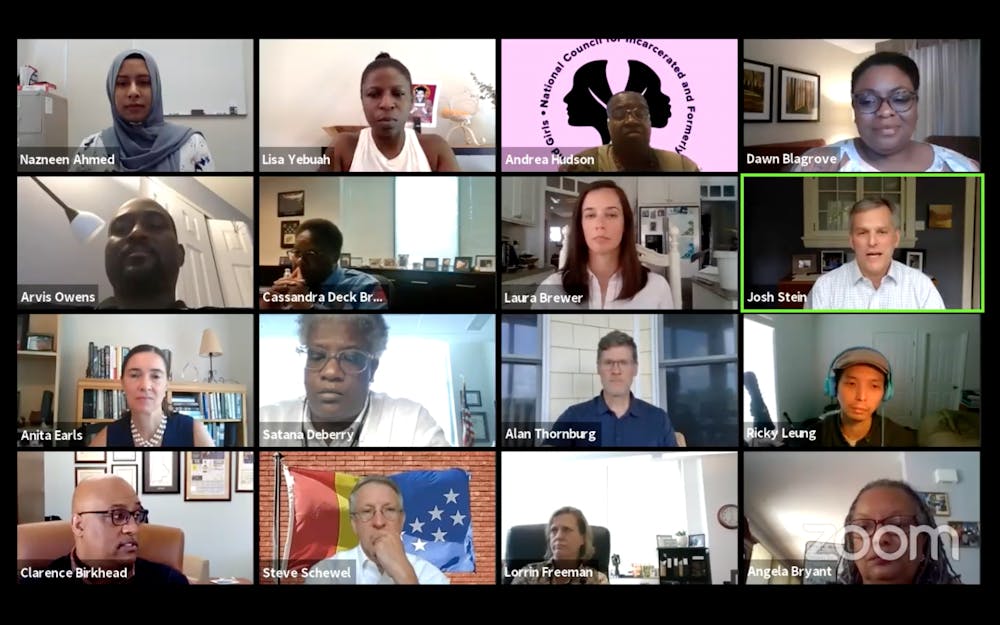The North Carolina Task Force for Racial Equity in Criminal Justice held a listening session Friday for the Triangle area to discuss issues and ideas for criminal justice reform.
The task force was established by Gov. Roy Cooper in June and is run by state Attorney General Josh Stein and N.C. Supreme Court Associate Justice Anita Earls. It has been holding listening sessions for community leaders in areas across the state.
The meeting was also attended by many local officials, including the mayors of Raleigh and Durham, district attorneys for both Wake and Durham counties, the chiefs of police in Raleigh and Burlington and a judge serving in the state’s 10th Judicial Circuit.
Stein opened the meeting by acknowledging what he called a “national reckoning on race and the criminal justice system.” He said the killing of George Floyd and the resulting public outcry has reshaped the way the public views racial inequities in the criminal justice system and in all other aspects of society.
He said Black people fare worse at every stage of the criminal justice system, from arrest and pretrial detention to convictions and sentencing, and that this trend needs to be reversed.
“The words chiseled on the face of the Supreme Court are ‘Equal Justice Under Law,’ and we don’t have that right now,” Stein said.
Dawn Blagrove, executive director of Emancipate N.C., spoke during the first half of the listening session, which revolved around reforms for policing and law enforcement.
One recommendation she made to increase police accountability was adjusting a state statute that prevents the public from accessing information related to possible criminal actions of a government employee unless investigations regarding it are completed. She acknowledged the possibility of these records being used in retaliatory acts but said she believes law enforcement officers should have their criminal records made public because of their ability to use lethal force.
Blagrove also said the task force should suggest creating an objective and independent body that is dedicated solely to law enforcement oversight, which should be entirely separate from all law enforcement bodies in the state.



